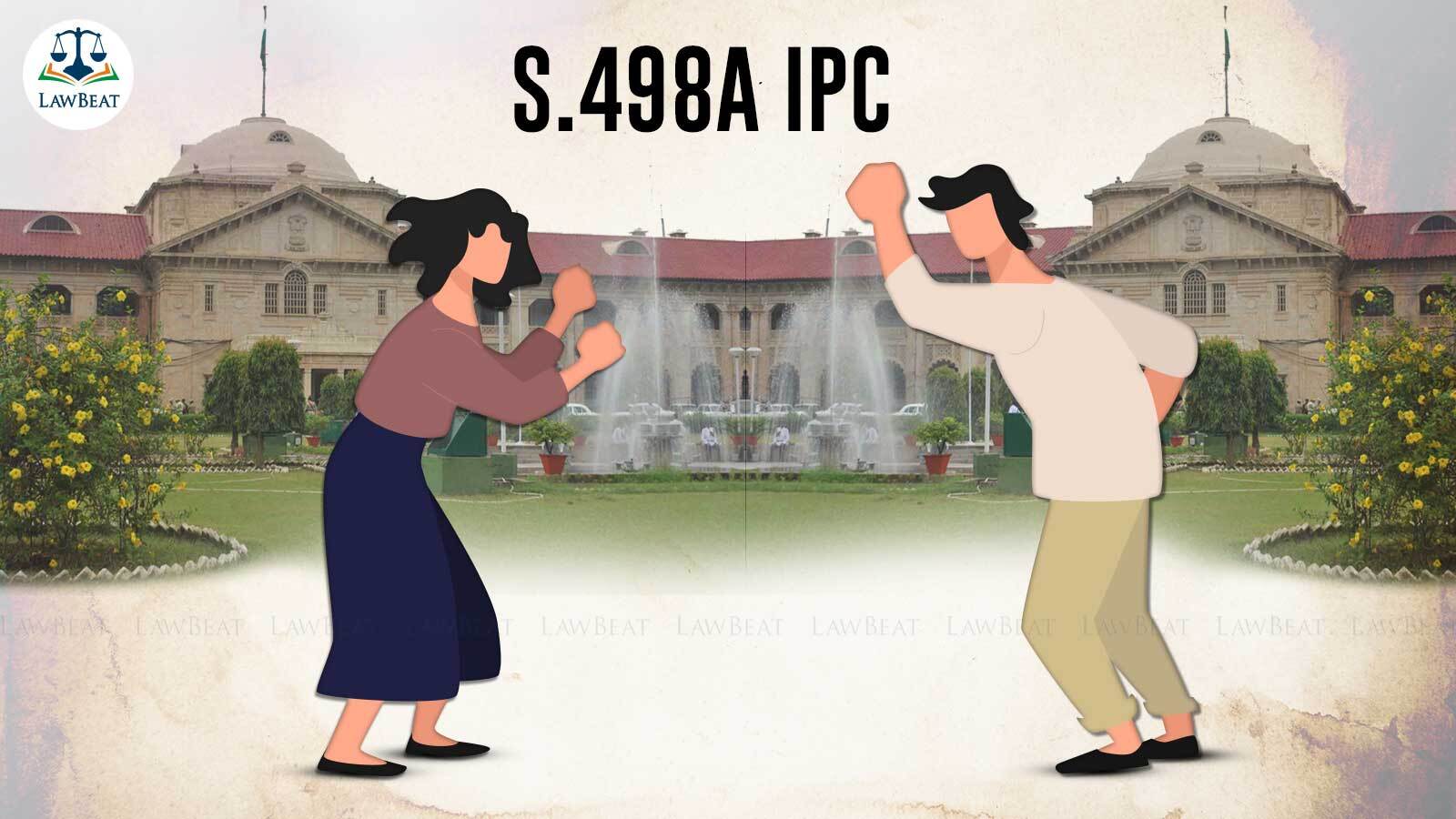'Second Wife' Can't File 498A IPC Complaint Against 'Husband', Dowry Prohibition Act May Apply: Allahabad HC

Court said that IPC is a penal provision, not beneficial legislation where the liberal interpretation is permissible, therefore, strict interpretation of the 'term' husband is required for Section 498A
The Allahabad High Court recently observed that proceeding under Section 498A of the Indian Penal Code (IPC) are not maintainable against a husband at the instance of a second wife.
Section 498A, IPC provides punishment for cruelty on a married woman by husband or relatives of husband.
The bench of Justice Arun Kumar Singh Deshwal said that IPC is a penal provision, not beneficial legislation where the liberal interpretation is permissible, therefore, strict interpretation of the 'term' husband is required for Section 498A.
Court pointed out that the definition of the husband is unavailable either under IPC or the Hindu Marriage Act of 1955. However, as per Section 5 of the Hindu Marriage Act, for a valid marriage, neither party to the marriage should have a living spouse at the time of marriage, meaning that if the first wife is alive, marriage with another woman is not valid, court said.
It held that the relationship between a man who is already married and another woman cannot of husband and wife and therefore, proceedings under Section 498-A are not maintainable in such cases.
However, court noted that as far as an offence under Section 3/4 of the Dowry Prohibition Act (DP Act) is concerned, the main ingredients are giving, taking or demanding dowry by any person.
Court also pointed out Section 2 of the Act which provides that dowry may be given at, before or after the marriage.
"Therefore, for the dowry, the performance of marriage is not necessary, and even a marriage contract is sufficient," court held.
It clarified that if a male and female are cohabiting together as husband-wife and the male partner makes any dowry demand from the female partner, then ingredients of Sections 3 and 4 of the D.P. Act are attracted.
The observations were made by the court while dealing with an application filed under Section 482 CrPC to quash a case registered under Sections 498-A, 323, 504, 506 of IPC and Section 3/4 of the DP Act.
The allegations against the accused persons were that they harassed the victim, who had been married to one of the accused for six years and was mother of three children, over dowry demands. Furthermore, they physically assaulted her.
The counsel for the accused persons challenged the 498A IPC proceedings contending that the FIR by the second wife was lodged in 2019 whereas, the accused-husband got divorced from his first wife in 2022, therefore, the proceedings were illegal.
On the other hand, the government counsel argued that for the purpose of Section 498-A, IPC as well as Section 3/4 of the DP Act, strict interpretation regarding the validity of marriage should not be made and liberal consideration should be given.
Court held that under Section 498-A IPC, it is explicit that to attract the ingredients of this Section, a woman must be subjected to cruelty by her husband or his relative.
Court said that since in the case at hand the woman was not legally wedded wife of the accused-husband, therefore, proceeding under Section 498-A, IPC were not maintainable against the accused persons.
However, court held that proceedings under the DP Act were valid and on record, there was sufficient material to make out a prima facie case under Section 323, 504, and 506, IPC.
Accordingly, court quashed the case only under 498-A, IPC and allowed the court below to proceed against the accused persons in rest of the Sections invoked against them.
Case Title: Akhilesh Keshari And 3 Others v. State of U.P. and Another
